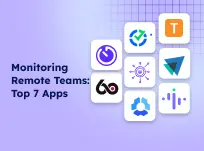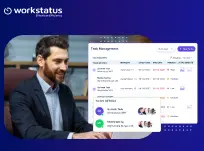Table of Contents
Self-management is an important skill to develop, especially when managing other people. If your team members aren’t self-managing, they will probably be less productive, and their efforts may not align with your company’s mission and values. To help your employees keep on track, you can teach them self-management tips.
Self-management has long been promoted as an important skill for success in both your personal and professional life, and remote work makes it even more crucial to have these skills under control.
Without them, you can easily struggle to stay on top of everything, which isn’t ideal if you want to enjoy the many benefits of working from home or in an office far away from your boss. That’s why self-management is highly important for any worker.
Self-management refers to how well one manages themselves, including their energy levels, ability to focus, and knowledge of how to stay on task throughout the day.
Self-management skills are critical in any workplace, but they’re even more important in remote teams, where there are fewer cues about when someone should take a break or stop working on one task and start another.
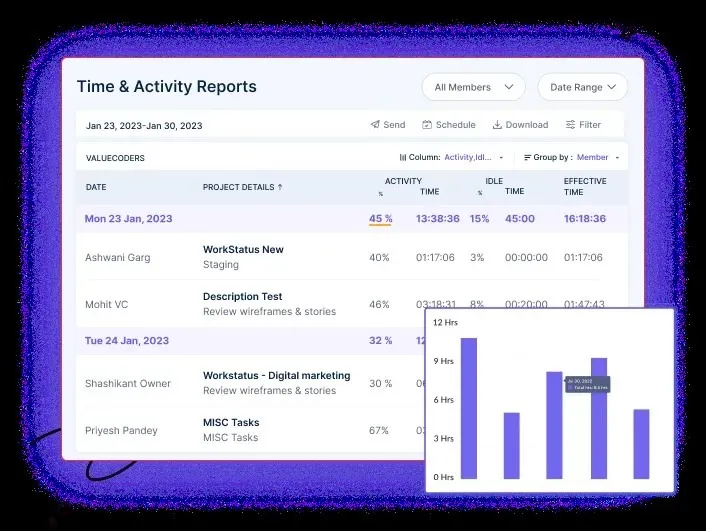
7 Self-Management Tips to Help Your Remote Employees
To get you started with self-management, here are seven tips to help your remote employees stay on track and do their best work while they’re working remotely.
1) Set Goals
Setting goals is the first step to good self-management. Without goals, it’s easy to get sidetracked and become less productive. Make sure your goals are specific, measurable, achievable, relevant, and time-bound.

Source: dumblittleman
You should know exactly what you need to do and when to do it so you can plan for it in advance. It also makes sense to have a timeline in place as a reminder of what needs to be done at what point (e.g., every day, weekly) because this will help you stay on track with your goals.
You’ll feel more organized and get more done if you have a complete goal list, tasks, and projects, along with your schedule for accomplishing your goals. Having everything written down in front of you will make it easier to manage yourself and keep your team members focused on their goals.
2) Communicate More Often
In a remote work environment, it’s important to communicate more often than you would in a traditional office setting. This helps ensure everyone is on the same page and helps prevent misunderstandings among the team.
Suppose your employees are working remotely and are relying heavily on internet access for their work. In that case, this becomes even more crucial to communicate with each other so that they know what to expect from one another.
Communicating more often with each other can also help them to enhance their management skills for their future or company leadership positions which can be an invaluable resource. For example, when managing virtual teams, there will be many times when one person needs help but doesn’t want to bother others by asking too much.
By communicating more often with your remote employees, they’ll learn how to ask for assistance appropriately and manage themselves while not being supervised face-to-face. When this skill is practiced, it will carry over into the workplace and make them a more valuable asset in any job position.
——————————————————————————————————————
Also Read: 11 Remote Working Tips To keep Remote Employees Engaged and Productive
——————————————————————————————————————
3) Ask For Feedback
Asking for feedback is an important part of self-management. It allows you to get an outside perspective on your work and performance and can help you identify areas where you need to improve. When asking for feedback, be specific about what you would like feedback on, and be open to hearing both positive and negative feedback.
Positive feedback will help you to feel better about yourself and give you the confidence to keep going. Negative feedback will allow you to see where improvements are needed so that you can focus on those things when working and try not to repeat mistakes.
If someone has something negative to say about you, try not to take it personally and instead listen carefully as they may be able to provide some valuable insight into how you can do better next time. This will let you know what aspects of your performance might be worth discussing with a manager.
You can ask a friend or colleague who does not know you well for their opinion on your strengths and weaknesses. This could help you identify new skills or areas in which you could improve your management skills.
4) Maintain Daily Task Schedule
One of the remote employees‘ most important self-management skills is the ability to maintain a daily task schedule.
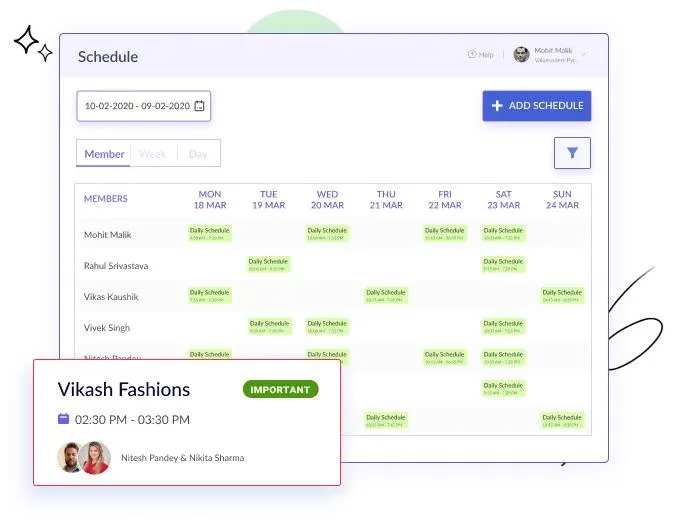
This will help you stay focused and ensure that your employees’ tasks are completed on time and have complete schedule control over their day.
To ensure that your employee’s tasks are not slipping through the cracks, provide them with tools such as employee monitoring software, which can be useful in keeping tabs on what they’re doing at all times!
They can also use this tool to set goals and track their progress towards these goals. The point is to put up a structure so that work doesn’t slip through the cracks because it’s hard to keep everything straight when it happens every day without any structure. Maintaining a schedule is one of the best ways to avoid this.
5) Keep Track Of Your Time
One of the most important self-management skills is time management. And when you’re working remotely, it’s even more important to keep track of your time and stay on task to be as productive as possible.
For those employees who might need a little extra help staying on top of their tasks, some companies use remote employee monitoring software to help them stay organized and manage their work efficiently.
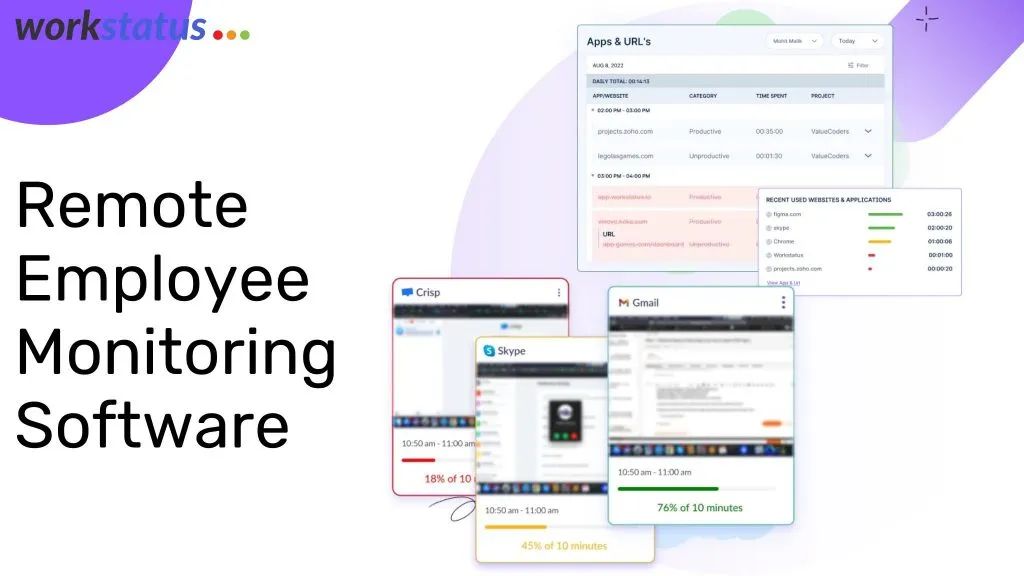
Start Your Free Trial Here-
These tools help remote workers to track their time and productivity levels, identify bottlenecks in the workflow process, delegate certain tasks to other team members for faster completion, communicate with colleagues in real-time for the betterment of the project, and collaborate with team members seamlessly.
With these personal management skills being taken care of by the company, remote employees have one less thing to worry about while they focus on getting their jobs done.
Also read: Workstatus vs. Clockify vs. Toggl- The Ultimate Battle to become the Best App for Time Tracking
6) Evaluate Monthly Performance
A great way to help your remote employees stay on track is to evaluate their performance monthly. This will allow you to see what they are doing well and where they may need improvement. Plus, it will help you identify any training or development needs they may have for the future.
This process can be repeated each month so that the employee feels like they’re getting feedback regularly through which they can develop themselves and enhance their performance. The evaluation should also be done periodically so that the employee feels valued and connected with the company culture.
This monthly evaluation will help you gather information about your remote employees’ strengths and weaknesses to provide them with the tools necessary to excel at their job. It will also provide opportunities for them to share new ideas and suggestions to improve workflow and work productivity.
7) Celebrate Small Wins
Celebrating small wins is a great way to stay motivated and focused. It can be easy to get bogged down in the day-to-day grind, but remembering to take a step back and celebrate your accomplishments can help you stay on track.
Self-improvement is not just about taking care of yourself. It’s also about celebrating your accomplishments for how far you’ve come and what you have accomplished. Sometimes, a little acknowledgment goes a long way! So go ahead and pat yourself on the back with praise. Pat your team members on the back too.
Doing this could make you or someone else feel better about themselves, making them more productive at work. You’ll also see that recognition motivates you to do even better next time, which is when our hard work pays off. If that doesn’t inspire you, then we don’t know what will.
Workstatus Is The Best Workforce Management Software
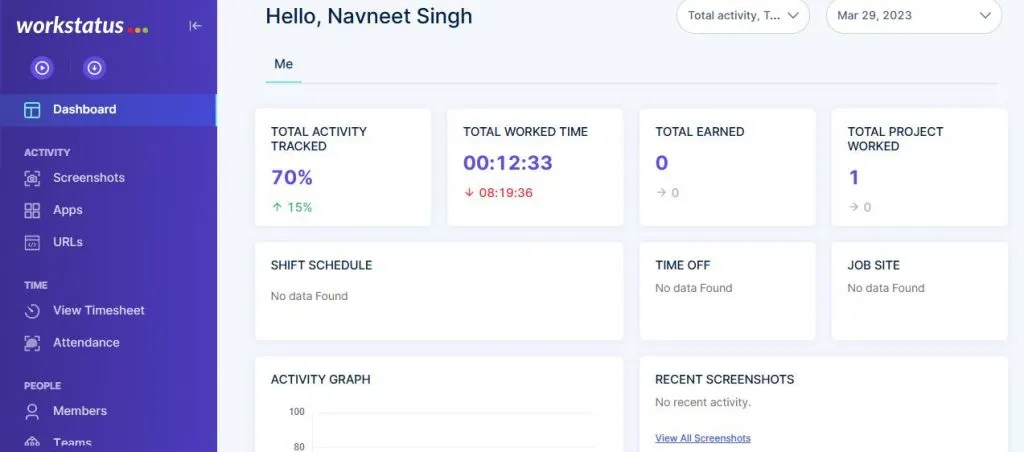
Workstatus is the best workforce management software for monitoring your remote employees. With Workstatus, you can see when employees are working, what they’re working on, and how much progress they’re making.
Workstatus also allows you to set goals and deadlines, so it’s easy to know if an employee is meeting expectations. You can also set up automatic notifications if something goes wrong or a project deadline is nearing.
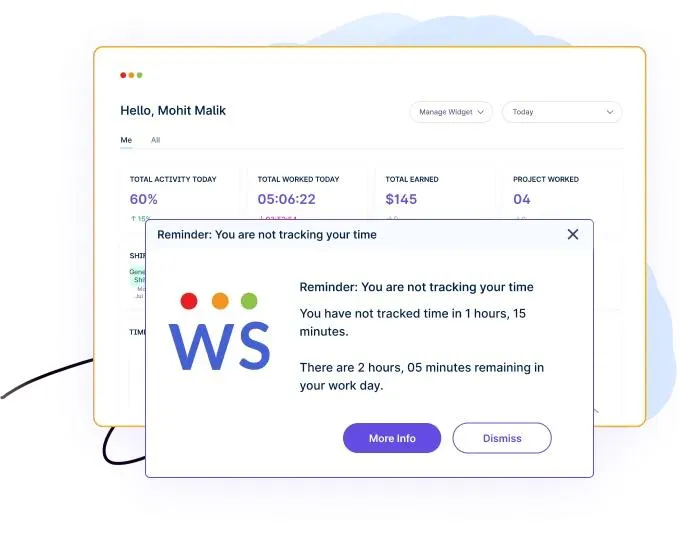
This way, you’ll always be in the loop about what’s going on with your team members’ projects and how effectively they manage their tasks.
All in all, Workstatus is a much better way of managing your remote workforce. If you want something to help you and your team members get their work done faster and more efficiently, give Workstatus a try today!
Conclusion
Although it may seem daunting, managing a remote team can be successful with clear communication and guidelines. By following the tips above, you can set your employees up for success and ensure that your business runs smoothly.
Remember, it’s not always easy to manage a remote team, but it is worth the effort to do so. If you follow these tips, your remote teams can operate more efficiently.
Thanks for reading this blog post about self-management tips for your remote employees. We hope this information was helpful, and if you have any questions or feedback, please leave them in the comments below.
FAQs
Ques. What are some ways to help remote employees stay on track?
Ans. You can improve the performance of your remote employees by establishing open communication and clearly defining expectations.
Furthermore, providing them access to helpful resources such as project management programs and time-tracking apps like Workstatus can greatly improve their productivity. Creating an atmosphere of support and positivity is also necessary to keep them motivated and dedicated to their work.
Ques. How can managers effectively communicate with remote employees?
Ans. To keep remote employees connected, managers should use video conferencing, messaging, and schedule frequent virtual meetings. Additionally, they should frequently inquire about progress, requirements, or challenges that their employees face.
Also, having clear, timely goals will ensure that the remote team is on track. Ultimately, the objective is to establish an atmosphere of open and honest dialogue between supervisors and remote personnel.
Ques. What are some challenges faced by remote employees?
Ans. Remote employees may face the following challenges:
- Low focus and productivity
- Isolation and loneliness
- Difficult to establish working relationships
- Hard to monitor the performance
- Limited technical support
Thank You !!
We will catch you soon with another blog post.
Until then, keep being awesome!



